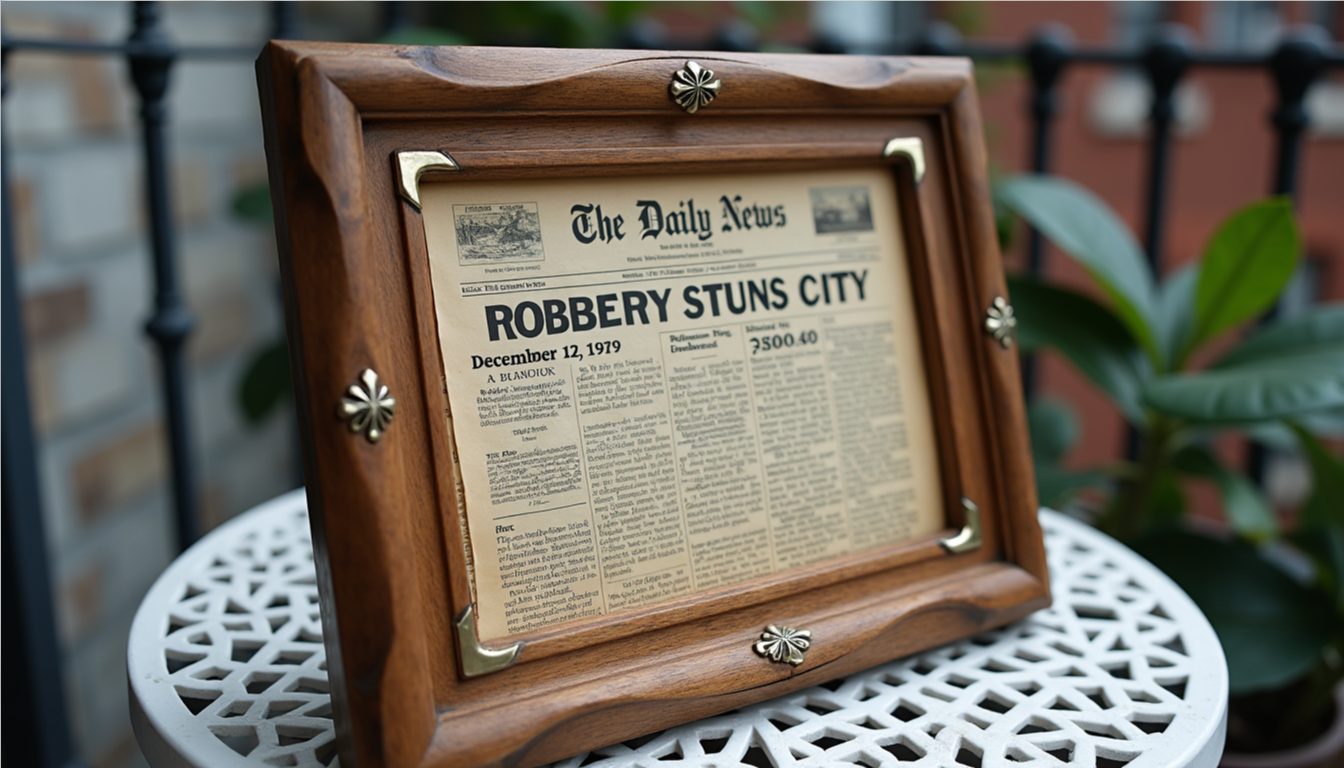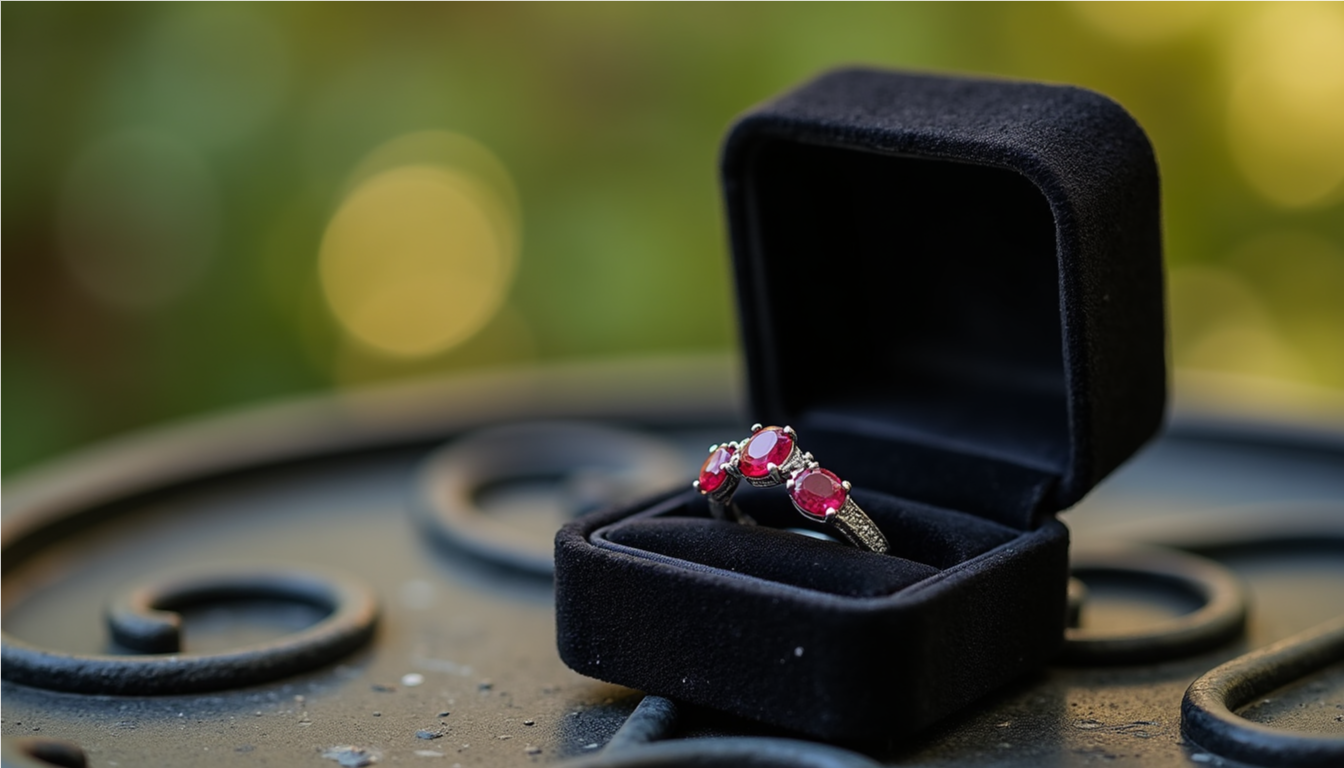The Hidden Fortune
Goodfellas: The Last Man Standing
Years ago, while researching another Lucchese crime family story from the early 1980s, I stumbled on a rumor—one that refused to die. It claimed that a made man from Paul Vario’s crew had vanished with most of the jewelry from the 1978 Lufthansa Heist. Over $750,000 of the roughly $875,000 in stolen jewels never surfaced—at least not officially. From time to time, pieces would show up in private collections, pawn shops, and police seizures, usually in Florida.
For years, I brushed it off—a mob fairy tale. But every time I chased another story, I’d ask around, half-joking, half-hopeful. And the rumor grew teeth. Now, three years later, I’ve confirmed it’s true.
This series, Goodfellas: The Last Man Standing, is my investigation into the man who outlived Jimmy Burke’s bloody cleanup, the Lufthansa loot, and every cop who chased the case. It’s the story of one man who survived—and the secrets he kept hidden all these years.
The Hidden Fortune
Anthony didn’t speak. He just looked at me—really looked at me. Not like a man scanning a face, but like someone studying a soul, weighing whether the truth was worth the risk.
The silence stretched until it became a kind of conversation in itself. Then finally, he spoke.
ANTHONY:
You want to know about the jewelry? I’ll tell you about the jewelry. Because I don’t think you’re going to let it go.
I said nothing. Just nodded.
ANTHONY:
Alright then. Let’s do it.
And that’s when he started.
WILL RYLAND (WR):
You said you ran because the bodies started dropping. Was that the only reason?
ANTHONY:
It was the big one. But not the only one. I knew Jimmy. I knew what he was capable of. Hell, we all did. The moment he started cleaning house, I figured I was next. Not because I talked. Just because I could.
WR:
So let’s talk about what you were holding. The jewelry.
ANTHONY:
Jimmy gave me a bag two days after the heist. Said to hold it until he told me otherwise. No questions. No inventory. Just keep it safe. So I did.
WR:
Did you know what was in it?
ANTHONY:
I had an idea. You could feel it just picking it up—weight like that doesn't lie. I never opened it at first. That was part of the job. But I wasn’t stupid. When he started coming by and pulling pieces out, I got a look.
WR:
What kind of stuff are we talking about?
ANTHONY:
Rings. Necklaces. Stones. Mostly old stuff. European cuts. A couple watches. It was clear a lot of it came from passengers, not the airline. Personal stuff. Probably meant more to the owners than the banks.
WR:
How long did you hold onto it?
ANTHONY:
Not long. Jimmy took some of it over a few weeks, but when people started dying, I got spooked. I waited until I thought he was distracted, then packed up what was left and vanished.
WR:
Straight to Florida?
ANTHONY:
Yeah. Rented a car, left the city, and never looked back. I had a guy down here who owed me a favor. Got me a new name, clean papers, fake birth certificate, the whole thing. I paid him with a gold necklace from the bag. Seemed fitting.
WR:
And you’ve been here ever since.
ANTHONY:
Mostly. I moved around a bit at first. You learn to stay invisible. Cash only. No bank accounts. No leases in your name. I had to learn a whole new way to exist.
WR:
But the jewelry—how did you live off it?
ANTHONY:
One piece at a time. Never in the same place. Never too much. You find a small-time fence or pawn shop a hundred miles away. Sell a piece. Use that to live for a while. Then move. I never got greedy. That’s why I’m still here.
WR:
What about the FBI? Did they ever come close?
ANTHONY:
Not once. Not to me. They hit guys around me. Friends. Cousins. But I stayed two steps ahead. I didn’t keep anything flashy. Didn’t talk. And more importantly—I didn’t trust anyone.
WR:
So what happened to the rest of it?
ANTHONY (quiet for a moment):
Some I sold. Some I traded. Some I buried. When you live like I did, the idea of keeping it all in one place doesn’t make sense. That’s how you get caught. Or killed.
WR:
But you kept something. You said you did.
ANTHONY:
Yeah. One thing. Want to see it?
He stood up and went inside.
A few minutes later, he returned with two items: a framed copy of the New York Daily News, yellowed but well-preserved, dated December 12, 1978—the headline splashed across the top: "$5 MILLION AIRPORT ROBBERY STUNS CITY"
Below it was a list of reported stolen goods. Highlighted in fading ink was a line that read: “Platinum ring with rubies, estimated value: $28,000.”
Anthony set the frame on the table with care.
I recognized the frame instantly. Same rough oak border. Same brass corners etched with fleur-de-lis. It was identical to the one in the pawn shop.
He noticed me staring.
ANTHONY:
Yeah. I framed that one too. Same as the one in the pawn shop.
He looked at me, waiting for it to click.
ANTHONY (continuing):
The guy behind the counter? He’s my cousin. Never said a word to the feds. Never gave me up. Just passed you along when the time was right.
And just like that, the last piece clicked into place.
Anthony had help. Real help. Not from his crew, not from the life—but from blood. Family that never flipped, never folded, never sold him out. While the mob would’ve turned on him the second it suited them, his cousin stayed quiet. Kept the door open. Passed me along when the time was right.
He didn’t survive alone—he survived because someone out there still believed in loyalty beyond the oath.
He placed a small, black velvet box beside it.
He opened it.
Inside was the ring.
Three deep red rubies set in platinum, untouched by time. Even in the muted light of the balcony, it caught the sun and threw it back in quiet defiance.
He didn’t say anything. Just sat back and watched me take it in.
WR:
You held onto this for how long?
ANTHONY:
Forty-six years. Not because it was worth the most. Because it reminded me of what I walked away from. What I survived.
WR:
Why show it to me now?
ANTHONY:
Because if I die tomorrow, at least one person knows it existed. That it wasn’t all a story. And because I think you’ll tell it the right way.
WR:
Are there more like it?
ANTHONY (shrugging):
Maybe. Maybe not. But that one’s yours to hold. Just for a second.
He slid the box toward me. I picked it up. It felt heavier than I expected. The velvet worn smooth on the edges. Inside, the ring pulsed in the light like it knew what it had survived.
I took a photo. You’re looking at it right now. Proof that some legends really do leave a shadow.
When I handed the box back, Anthony didn’t close it. He just stared at the ring for a long time.
ANTHONY:
You asked me once if I regret anything. I don’t. But I wonder what life would’ve looked like if Jimmy never came to me with that bag.
WR:
Do you ever think about going back?
ANTHONY (smirking):
To what? Brooklyn? There’s no one left. Paul’s dead. Jimmy’s dead. Even the guys that survived are ghosts. I like it here. I get my groceries, drink my coffee, sit in the sun. Nobody asks questions.
WR:
And what about the rest of the world? The people still chasing this story?
ANTHONY:
Let ‘em chase. All they’ll find is a trail gone cold.
That was the end of our interview.
As I walked back to my rental car, the image of that ring stayed with me. Not because of what it was worth. But because of what it represented: the quiet, elusive weight of truth.
There wasn’t anything left to chase. Not every story ends with a twist. Sometimes, it just ends—with the truth, finally told, and the silence that follows.





